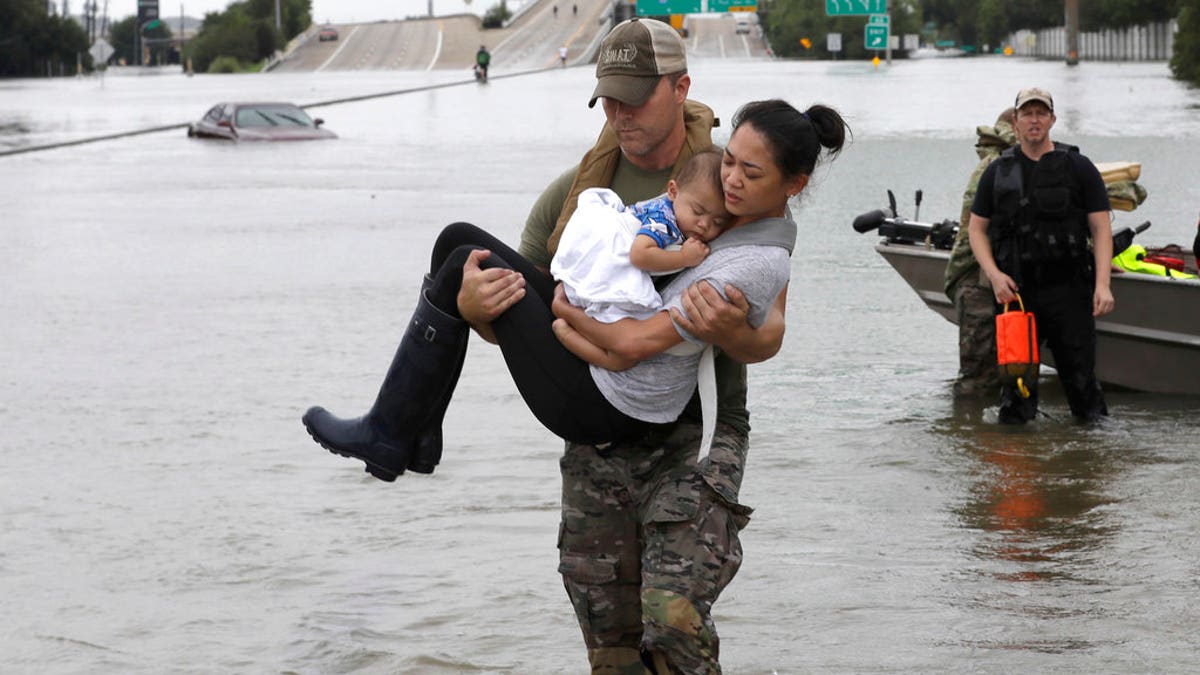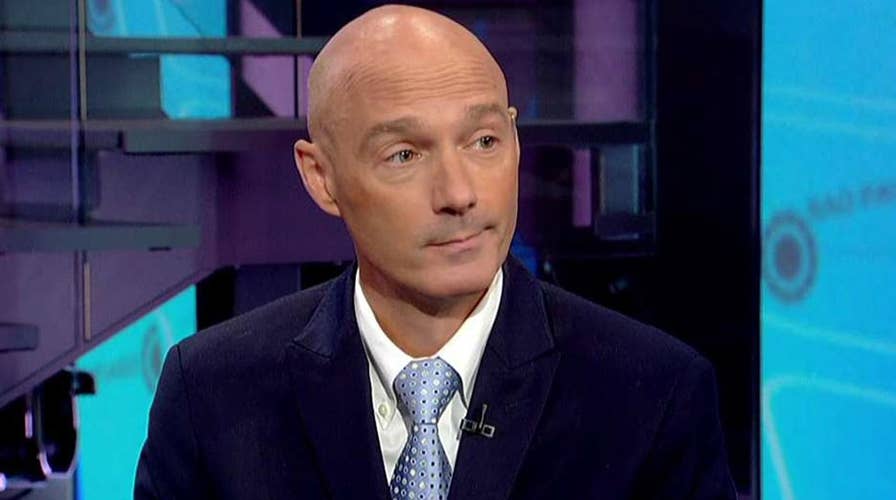Harvey relief changing political winds in Washington?
Aid package shape new political reality for Republicans on Capitol Hill; reaction and analysis from Glenn Hall, U.S. editor for the Wall Steet Journal
Texas Gov. Greg Abbott earlier this week accepted Mexico’s offer of assistance as the state grapples with the effects of Hurricane Harvey.
In a diplomatic note to Abbott, Mexico’s undersecretary for North American relations, Carlos Sada, offered a laundry list of items the country could send to the Lone Star State as it deals with the historic and devastating flooding caused by Harvey. The list included offers of troops, food, medicine, portable showers and water among other items.
"Texas and Mexico share more than half the border," Sada said. "There are families, marriages, businesses that bind our two sides. This is about being good neighbors."
Mexico’s offer to help comes at a time of strained relations between the country and the United States as President Trump repeatedly calls on Mexico to pay for his proposed border wall.
Adding to the tension are the negotiations beginning Friday between the U.S., Mexico and Canada to overhaul the North American Free Trade Agreement, which Trump has repeatedly threatened to leave. Also adding to the tension is the expected announcement by Trump to do away with Deferred Action for Childhood Arrivals, also known as DACA, the Obama administration program that protected from deportation hundreds of thousands of young people living in the country illegally.
"We're in a critical and delicate negotiation with NAFTA," Ricardo Ainslie, director of the Mexico Center at the University of Texas at Austin, told Governing. "Mexico has been the brunt of a lot of highly pressured, hostile rhetoric. So I think it's very interesting that Mexico is saying in so many words, 'Hey, we're present, and we're critical to things that happen in Texas.' They're showing real political maturity."
Trump has yet to publicly weigh in on Mexico’s aid offer, but Secretary of State Rex Tillerson earlier this week praised the generosity of America's southern neighbor.

Houston Police SWAT officer Daryl Hudeck carries Catherine Pham and her 13-month-old son Aiden after rescuing them from their home surrounded by floodwaters from Tropical Storm Harvey. (AP Photo/David J. Phillip)
“It’s very generous for Mexico to offer to help in this very, very challenging time,” Tillerson said, according to the Washington Post.
Department of Homeland Security adviser Tom Bossert added that the leaders of Canada and Mexico had called the White House to offer condolences and assistance.
"The president was deeply touched by those phone calls," Bossert said, noting that no decisions on the federal level have been made regarding the offers.
This is not the first time that Mexico has offered assistance to the U.S. following a major natural disaster. In the aftermath of Hurricane Katrina in 2005, Mexico sent troops in a convoy of 45 vehicles to Texas, where they set up camp at the former Kelly Air Force Base near San Antonio and served 170,000 meals, distributed 184,000 tons of supplies and conducted hundreds of medical consultations. The country also sent humanitarian aid to New Orleans after Katrina.
While the Mexicans were in the U.S., former President George W. Bush met with their military personnel to personally thank them for their help.
Mexico and Canada aren't the only countries to offer to help with Harvey relief efforts. Trump earlier this week accepted Singapore’s offer to lend four of its CH-47 Chinook helicopters for rescue efforts. The European Union is sharing its satellite mapping technology with U.S. emergency responders, and Venezuela – suffering its own political and economic crisis – offered $5 million in aid to the U.S.
Still, experts say, offers of foreign aid have been much less than during previous disasters and this may be linked to global resentment over Trump’s “America First” policy.
"Foreign governments are holding back, and that hasn’t been the case historically,” Markos Kounalakis, a visiting fellow at the Hoover Institution, told Politico. “They appear to be much more cautious, whether it’s for domestic political reasons or displeasure with President Trump. Do they want to be seen as helping Trump?”
Other observers, however, said that the dearth of aid offers has less do with Trump and more to do with a feeling that the U.S. has the situation with Harvey more under control than it did with Katrina.
Also, offers of foreign aid are usually about gaining some sort of political favor because "there's actually very few areas where the United States needs foreign assistance," Heritage Foundation official James Carafano told Politico.


